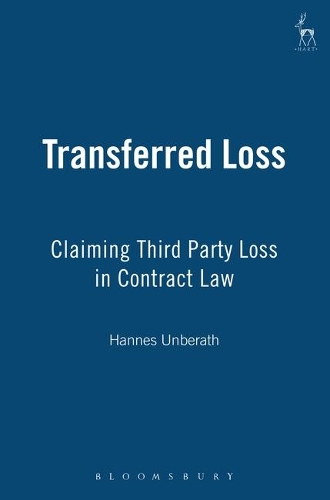
Transferred Loss: Claiming Third Party Loss in Contract Law
(Hardback)
Publishing Details
Transferred Loss: Claiming Third Party Loss in Contract Law
By (Author) Hannes Unberath
Bloomsbury Publishing PLC
Hart Publishing
10th April 2003
United Kingdom
Classifications
Tertiary Education
Non Fiction
Law of torts, damages and compensation
346.022
Physical Properties
Hardback
273
Width 156mm, Height 234mm, Spine 21mm
Description
Sometimes a breach of contract causes loss to a third party. This book takes a comparative approach to the question when the third party can recover that loss directly, and when the promisee can recover it. The second issue has arisen in carriage of goods, bailment, insurance and agency, and is becoming increasingly significant in construction law, as the recent decision in Alfred McAlpine Construction Ltd v. Panatown Ltd shows. The principal aim is to clarify whether and when a promisee is allowed to recover damages on behalf of a third party. The book also examines the impact of the Contracts (Rights of Third Parties) Act 1999 and recent judicial decisions seeking to increase the protection of the interest in the performance of the contract.
Reviews
This is a remarkably detailed study of the complex theoretical issues that arise when a breach of contract causes loss to a third party to that contract. Throughout the text, [Unberath] incorporates comparative materials drawn from German law to show how a civil law system has coped with the same issue concurrently and in isolation from the English common law and has reached solutions similar to those associated with transferred loss. . . the discussion of the English law is most illuminating and stimulating. . . Unberath has drawn all together in a remarkable synthetic and precisely written text. Clarity and exactness in expression to the highest degree is evident throughout. This book is a model of clear-headed English common law scholarship . . . . . . The high quality of this volume ensures its utility for both academic and practising lawyers in contract law. -- M.H. Oglivie * Canadian Business Law Journal *
Author Bio
Hannes Unberath is a Lecturer in Law at the University of Munich and a Visiting Fellow at the Institute of Global Law, University College, London.
